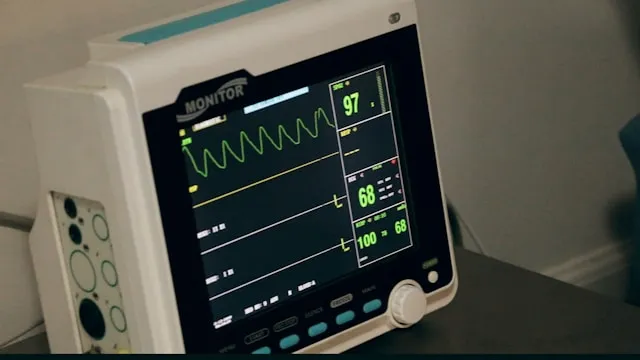That dull, burning sensation in the chest that doesn't seem to be going away, or is getting worse - is it a sign of a heart attack? Or is it something else?
This question troubles many individuals every year because of two main reasons:
1. Even though chest pain is a major sign of heart attack, it can stem from dozen other conditions besides a heart attack, like pneumonia, pleuritis, infection or panic attack.
2. Different people experience heart attack in different ways. While some have classic chest pain, other may have jaw or back pain, shoulder pain, breathlessness, and nausea or fatigue too.
How to know if chest pain is a warning sign for a heart attack?
Heart attack symptoms can vary greatly, even in people who have had a heart attack in the past. Here are some heart-related signs that could suggest an impending heart attack:
1. Uncomfortable pressure, fullness, burning, squeezing pain or tightness in the centre of the chest.
2. Uncomfortable sensations like pain, numbness, prickling or pinching in one or both arms, neck, jaw, back or stomach.
3. Shortness of breath.
4. Sudden nausea or vomiting.
5. Heat or flushing or cold sweat.
6. Unexplained fatigue.
7. Excessive sweating.
The following table distinguishes symptoms of heart attack likely to be due to a heart attack from those that could be due to other reasons:
|
Signs of heart attack |
Signs less likely to be heart attack |
| Pain, pressure, tightness or burning sensation in chest | Sharp, knifelike pain caused by breathing or coughing |
| Pain that develops gradually over few minutes | Sudden, stabbing pain that lasts for only few seconds |
| Diffused pain, in the middle of the chest | Pain on one side of the body or other |
| Pain extending to the left neck, arm, jaw or back | Pain localised to one spot |
| Pain may be accompanied by other signs like cold sweat, sudden nausea or difficulty in breathing | Pain that may last for many hours without any other symptoms |
| Pain or pressure feeling after physical activity, emotional stress, or even at rest | Pain felt by pressing on the chest or with body motion |
Also Read: 11 Common Causes of Chest Pain On The Right Side
Distinguishing chest pain: Heartburn or heart attack?
A common confusion that occurs between heartburn and heart attack involves mistaking a burning sensation in the chest for something else. It is important to learn the difference between heartburn and something serious that could affect life or death.
Knowing when it's heartburn
Heartburn usually occurs after eating or while bending or lying down. It is characterized by a burning sensation in the chest that may start in the upper abdomen and go all the way up to the neck. The sensation may last for a short time or continue for a few hours. Heartburn leaves a sour taste in the mouth, of stomach acid that moves up the esophagus, especially when lying down.
Under normal conditions, digestive acids in the stomach are kept from moving upwards by a ring of muscles around the esophagus. However, overeating, lying down too soon after meals, or certain foods like alcohol or caffeine can cause the muscles to weaken or increase the production of stomach acid, leading to heartburn.
Other causes of chest pain
Lung problems: Some problems with lung too can cause chest pain. These include:
- Pneumonia or lung infection causes deep chest ache accompanied by fever and chills.
- Pleuritis or inflammation of lining of the lung or chest causes chest pain due to bacterial or viral infection, along with sharp pain during breathing or sneezing.
- Pulmonary embolism is caused when a blood clot travels through the bloodstream and lodges in the lungs; it is indicated by troubled breathing and rapid heartbeat.
- Pneumothorax is often caused due to an injury to the chest when a part of the lung collapses; causes pain with every breath.
- Asthma, causing shortness of breath accompanies wheezing and coughing.
Gastrointestinal problems: Some GI tract problems that can cause chest pain include:
- Gastroesophageal reflux disease (GERD) or acid reflux
- Oesophageal contraction disorders (spasms in the esophagus), oesophageal rupture, or oesophageal hypersensitivity
- Peptic ulcer (painful sores in the stomach lining)
- Hiatal hernia, which occurs when the top of the stomach pushes into the lower chest after a meal.
- Pancreatitis, which causes pain in the lower chest
- Gallbladder issues, or pain in the lower right chest region or upper side of the abdomen, especially after a fatty meal.
Bone, muscle, or nerve problems: Pain from rib fracture may worsen upon coughing or deep breathing, or hard coughing can injure or inflame tendons or muscles between ribs, or chest pain may occur due to shingles caused by the varicella-zoster virus.
Do not ignore chest pain
Chest pain should not be ignored or shrugged off till tomorrow. Any discomfort in the chest accompanied by pain in the left arm, upper back, or jaw, faint feeling, nausea, or cold sweat must be treated as an emergency. It is common to ignore a possible heart attack chest pain for the following reasons:
- "I am too young."
- "I am physically active."
- "It could be nothing. I will only embarrass myself at the hospital."
The key is not to play a doctor on self and not to diagnose chest pain that could be a potential heart attack, at home.
List of Best Cardiologists in India
Best Cardiologists in Delhi | Best Cardiologists in Mumbai | Best Cardiologists in Kolkata | Best Cardiologists in Hyderabad| Best Cardiologists in Chennai | Best Cardiologists in India

Reviewed by







